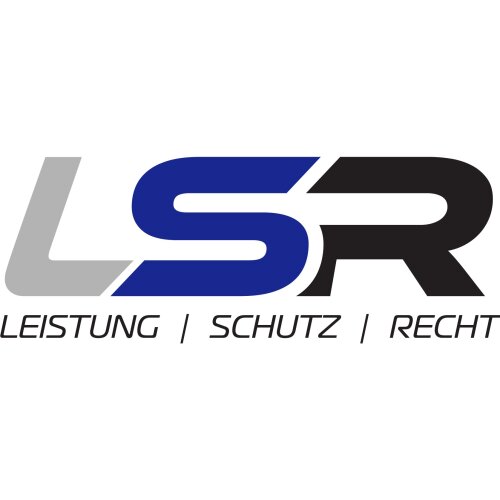Best Oil, Gas & Energy Lawyers in Austria
Share your needs with us, get contacted by law firms.
Free. Takes 2 min.
Or refine your search by selecting a city:
List of the best lawyers in Austria
About Oil, Gas & Energy Law in Austria
Austria plays a significant role in the European energy market, acting as both a producer and a transit country for energy resources. The nation is focused on ensuring energy security, boosting renewable energy sources, and maintaining a balanced energy mix. The Austrian energy sector is diversified, including oil, natural gas, hydropower, and increasingly, wind and solar energy. The legal landscape in Austria's energy domain is shaped by national regulations, EU directives, and international agreements, all aimed at sustainable energy development and environmental protection.
Why You May Need a Lawyer
Consulting a lawyer specializing in Oil, Gas & Energy in Austria may be necessary in various situations. Common reasons include: negotiating and drafting contracts for energy projects, compliance with local and EU energy regulations, managing disputes over resources or contracts, and navigating environmental laws related to energy projects. Additionally, legal expertise may be crucial for those involved in mergers, acquisitions, or investments in the energy sector to ensure due diligence and smooth transactions.
Local Laws Overview
The legal framework governing the energy sector in Austria is comprehensive, encompassing several key legislations. Some pivotal aspects include:
- The Gaswirtschaftsgesetz (Gas Industry Act) and Elektrizitätswirtschafts- und -organisationsgesetz (Electricity Industry and Organisation Act) regulate the transport and distribution of gas and electricity.
- The Mineralrohstoffgesetz (Mineral Resources Act) oversees the exploration and extraction of oil and gas resources.
- The Erneuerbaren-Ausbau-Gesetz (Renewable Expansion Act) promotes renewable energy sources, setting targets and incentives for increased renewable energy production.
- Compliance with EU directives and regulations, such as the EU Green Deal, further influences Austrian energy policies, especially regarding decarbonization and sustainability goals.
Frequently Asked Questions
What is the primary source of energy in Austria?
A significant portion of Austria's energy comes from hydropower, complemented by other renewables, natural gas, and some oil.
How is renewable energy promoted in Austria?
Through government incentives, subsidies, and the Erneuerbaren-Ausbau-Gesetz, which sets ambitious targets for expanding renewable energy capacity.
Are there specific regulations for oil and gas exploration?
Yes, the Mineralrohstoffgesetz outlines the rights and responsibilities for exploration and extraction activities.
How are energy disputes typically resolved?
Energy disputes can be resolved through negotiation, arbitration, or litigation, depending on the case specifics and contract terms.
What role does the EU play in Austria’s energy law?
EU directives shape national policies, ensuring Austria aligns with broader goals like reducing carbon emissions and increasing renewable energy usage.
Can individuals invest in Austrian energy projects?
Yes, individuals can invest, especially as the government encourages partnerships and private investments in renewables and infrastructure.
What is the future outlook for natural gas in Austria?
While natural gas remains crucial, Austria is increasingly focusing on renewables and reducing dependency on fossil fuels as part of its energy strategy.
Is environmental compliance mandatory for energy projects?
Yes, environmental compliance is essential for all energy projects, in line with both national and EU standards to minimize ecological impacts.
How does Austria ensure energy security?
Diversifying energy sources, investing in infrastructure, and maintaining strategic reserves are key strategies for energy security in Austria.
Are there incentives for businesses to adopt clean energy?
Yes, there are various incentives, including tax breaks, grants, and subsidies, to encourage businesses to incorporate renewable energy solutions.
Additional Resources
For further information or specific legal guidance, consider reaching out to these resources:
- Bundesministerium für Klimaschutz, Umwelt, Energie, Mobilität, Innovation und Technologie (Federal Ministry for Climate Action, Environment, Energy, Mobility, Innovation and Technology)
- E-Control, the Austrian energy regulator
- Austrian Oil and Gas Association (Österreichischer Mineralölverband)
- Austrian Chamber of Commerce (Wirtschaftskammer Österreich) for industry insights and legal assistance
Next Steps
If you require legal assistance in the field of Oil, Gas & Energy, consider the following steps:
- Assess your specific needs and gather relevant documents and information pertaining to your case or project.
- Consult with legal professionals specializing in Austrian energy law to obtain expert advice tailored to your situation.
- Engage with industry associations or government bodies to stay informed about any regulatory changes or opportunities in the energy sector.
- Consider attending seminars or workshops to deepen your understanding of the legal frameworks and current trends in the energy industry.
Lawzana helps you find the best lawyers and law firms in Austria through a curated and pre-screened list of qualified legal professionals. Our platform offers rankings and detailed profiles of attorneys and law firms, allowing you to compare based on practice areas, including Oil, Gas & Energy, experience, and client feedback.
Each profile includes a description of the firm's areas of practice, client reviews, team members and partners, year of establishment, spoken languages, office locations, contact information, social media presence, and any published articles or resources. Most firms on our platform speak English and are experienced in both local and international legal matters.
Get a quote from top-rated law firms in Austria — quickly, securely, and without unnecessary hassle.
Disclaimer:
The information provided on this page is for general informational purposes only and does not constitute legal advice. While we strive to ensure the accuracy and relevance of the content, legal information may change over time, and interpretations of the law can vary. You should always consult with a qualified legal professional for advice specific to your situation.
We disclaim all liability for actions taken or not taken based on the content of this page. If you believe any information is incorrect or outdated, please contact us, and we will review and update it where appropriate.
Browse oil, gas & energy law firms by city in Austria
Refine your search by selecting a city.

















